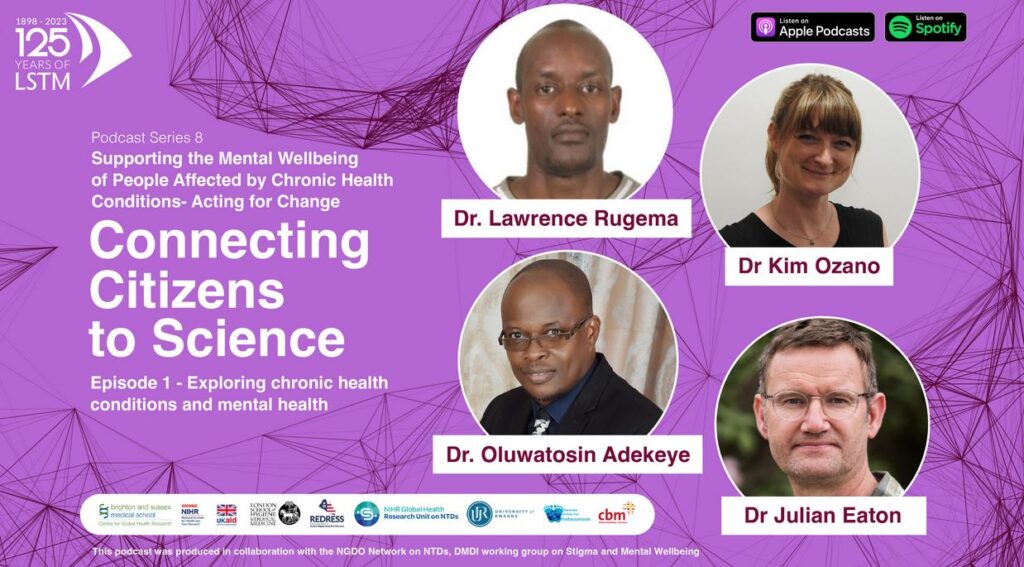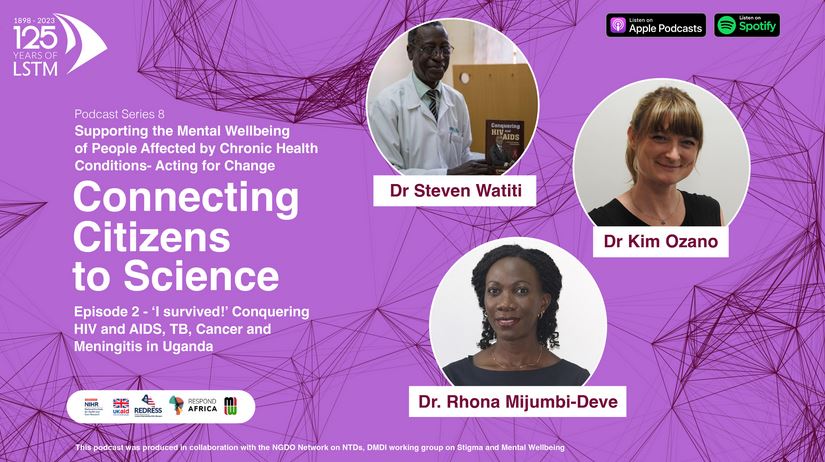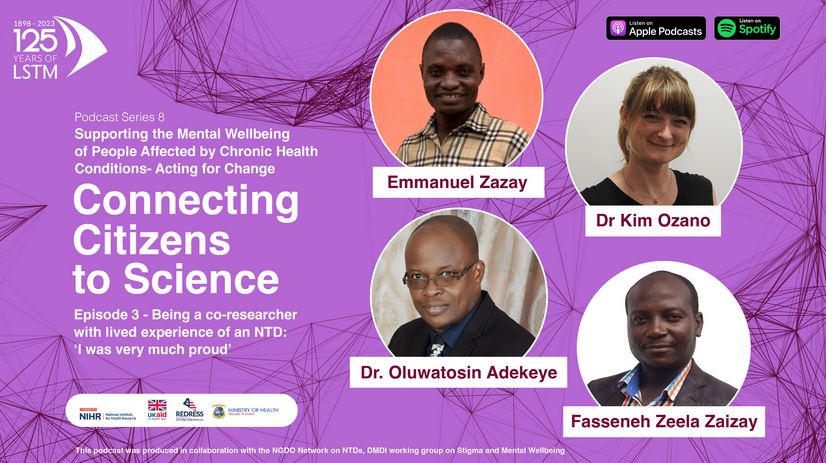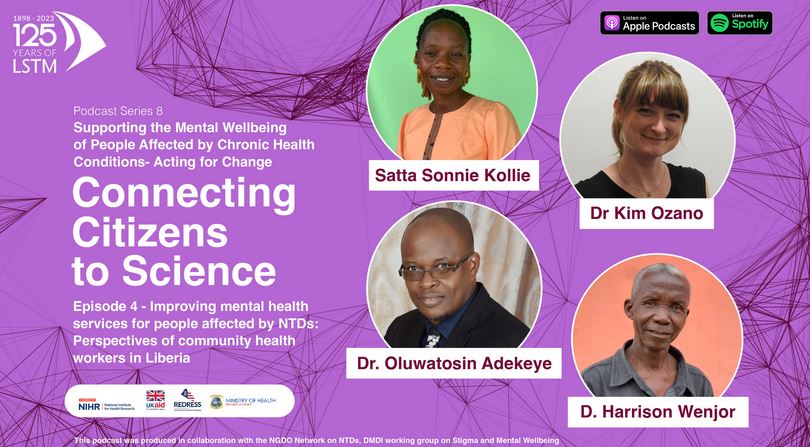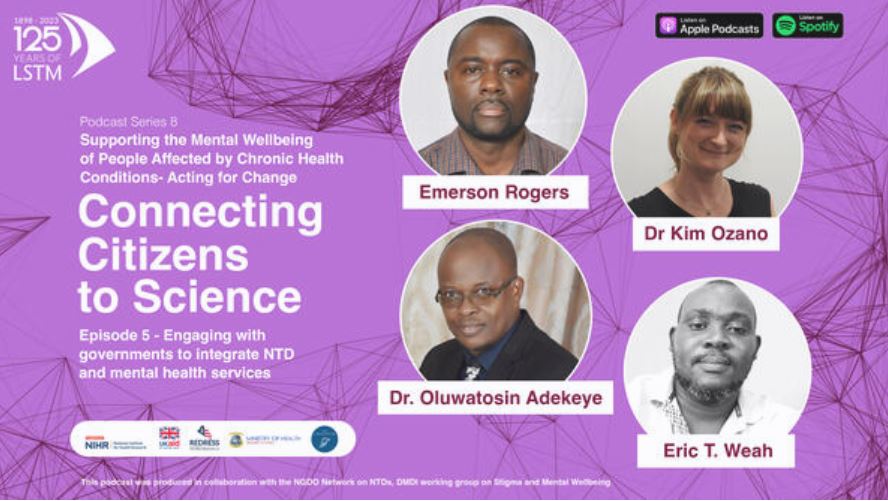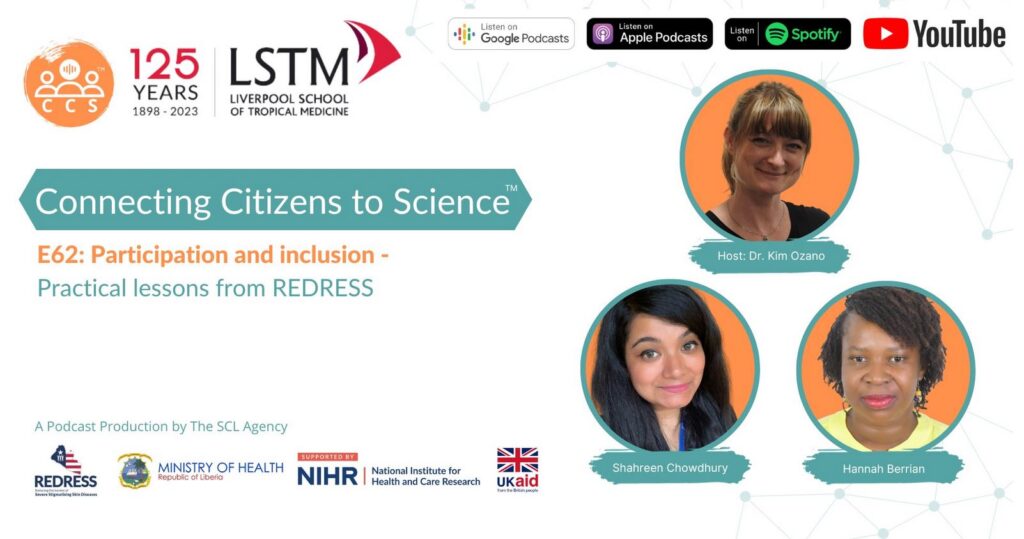
Welcome to our REDRESS community engagement and involvement (CEI) webpage where you can stay up to date with all our CEI activities.
Please click here to see a blog about why CEI is important to REDRESS and how it informs our work.
REDRESS defines CEI as “the meaningful, respectful, and fit-for purpose involvement of a range of community members in one or more aspects of the research project.”
Within REDRESS we work with a number of key communities to achieve meaningful CEI and have identified five initial priority areas for community engagement which are pictured below:
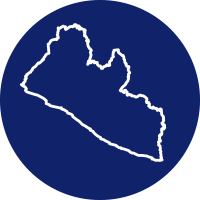
1. Establishing community advisory boards within each implementation county and at national level

2. Establishing a Ministry of Health technical advisory board which includes key stakeholders from relevant divisions within the MoH
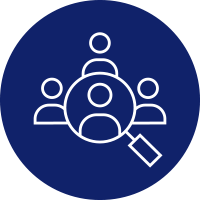
3. Involving people affected, and other community actors as peer researchers

4. Using participatory methods to elevate and listen to community voices

5. Sharing learning with other NTD actors and the general public in Liberia and beyond
We hope you enjoy exploring the webpage and finding out more about community engagement within REDRESS. Please click on our interactive icons below to explore some of our CEI knowledge products.
Community Engagement Videos
Community Research Partnerships
Our co-researchers based in Lofa, Margibi and Grand Gedeh Counties have been engaged throughout the whole research process, from data collection, intervention design, evaluation and analysis. Hear about their experiences...
Investing in Liberia's Research Infrastructure
REDRESS enhanced capacity for country-owned, sustainable health systems research and delivery. This included developing the skills and experience of four Liberia-based multi-disciplinary research fellows. Here the fellows talk about their development journey.
Strengthening Health Systems
The REDRESS intervention manual is designed to support health workers to deliver holistic services for skin NTDs through the primary health care system. Emerson Rogers from the Ministry of Health shares his experiences of being part of REDRESS and the legacy of the research.
Pandemic Portraits: A Photovoice Study on Disability & Covid-19 - Co-researcher Commentary
Disability advocates, Heylove Robert Mark & Boakai Abu Nyehn Jr. of the National Union of organisations of the disabled (NUOD) discuss their experiences of working on the Pandemic Portraits project.
iCHORDS Presentation - Power, Participation and Promoting Equity in the management of Skin NTD
REDRESS Colleagues Wede Tate & Rosalind McCollum discuss the use of innovative visual methods to design, pilot and evaluate integrated health systems strategies for the improved managed of skin NTDs in Liberia.
Empowering people affected by skin NTDs
Patient advocates, together with co-researcher and peer advocate lead, Emmanuel Zaizay, produced videos to share their experiences. In this video, Emmanuel speaks to Samuel Potokenur, Peer Support Group Leader in Foya District, Lofa, about the effects of REDRESS.
Supporting the Comprehensive Fight against Skin NTDs: Gender and Mental Health
REDRESS UK and Liberia project leads and researchers explain how REDRESS supports the comprehensive Flight against Skin NTDs with a focus on gender and mental health. Video created for ANESVAD workshop.
World NTD Day 2022: Reducing the Burden of Severe Stigmatising Skin Diseases in Liberia
REDRESS colleagues discuss how the project is working to reduce the burden of severe stigmatising skin diseases (SSSDs) in Liberia and the importance of engaging those affected by SSSDs and their communities.
Health Systems Global Conference 2022- Presentation by India Hotopf
Introducing REDRESS
REDRESS colleagues and those affected by severe stigmatising skin diseases introduce the project
Medicine, Children, and Skin Disease: A moral journey
REDRESS's Dr Laura Dean discusses the stigma and burden of skin disease and what we can do about it as part of the Pint of Science public engagement series
Community Health Worker (CHW) Central Webinar
REDRESS co-researchers discuss their experiences of conducting the REDRESS photovoice study in Liberia
Podcasts
In this episode, The CCS team hear from Dr Rugema Lawrence from the University of Rwanda and Dr Julian Eaton from the London School of Hygiene and Tropical Medicine and CBM Global Disability and Inclusion. Together they discuss the links between stigma, discrimination, mental wellbeing and chronic health conditions including Neglected Tropical Diseases (NTDs).
In this episode, The CCS team hear from Dr.Steven Watiti who works for Mildmay Uganda, a leading HIV and AIDS service organisation, about living and aging with HIV and AIDS. Steven speaks about the importance of mental health support and social capital when living with a lifelong health condition and calls for others to respond.
In this episode we hear from Emmanuel Zazay who is a peer researcher in the REDRESS programme and is affected by Buruli Ulcer, a neglected tropical disease. He shares with us the value of learning new skills, through becoming a co-researcher, which has helped him better connect with his community and contribute to the improvement of medical and psychosocial services for people living with NTDs.
In this episode, the guests and hosts discuss the importance of using local dialect, and being a trusted member of the community, especially when talking about mental health and providing counselling to people affected by chronic health conditions.
This week’s episode features Philip Ode, a Programme Officer/Mental Health Focal Point from CBM Global Disability Inclusion, Nigeria and Tarry Asoka, a consultant in health and development. Together with co-host Tosin Adekeye, they discuss the development and delivery of an essential care package for integration of mental health and Neglected Tropical Diseases, including how communities and people affected have been involved.
In this episode we talk to Dr. Tosin Adekeye and Wede Tate about the method ‘Photovoice’ that was used with people affected by severe stigmatising skin diseases in Nigeria and Liberia. We hear about how Photovoice can enable people to capture their everyday experiences of living with their condition. Connect people with decision makers through dissemination of photos and narratives.
In this episode, we discuss meaningful participation and inclusion when working with marginalised communities. We draw on research approaches from the Reducing the Burden of Severe Stigmatising Skin Diseases (REDRESS) research programme that aims to reduce illness, stigma, social exclusion, and poverty caused by severe stigmatising skin diseases (SSSDs) in Liberia.
CEI Blog Series
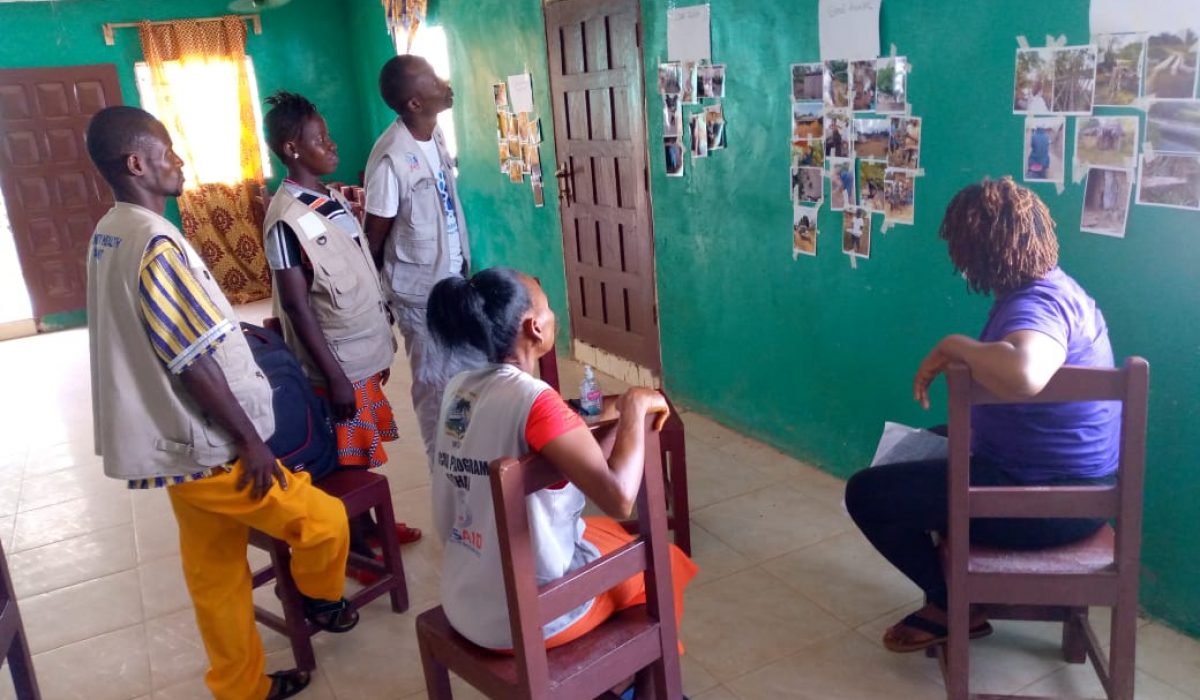
What does Community Engagement and Involvement (CEI) mean to REDRESS?
REDRESS is launching our new community engagement webpage, where you can stay up to date with our community engagement and involvement activities. In this blog we introduce more about CEI, why it matters to REDRESS and how it informs our work.
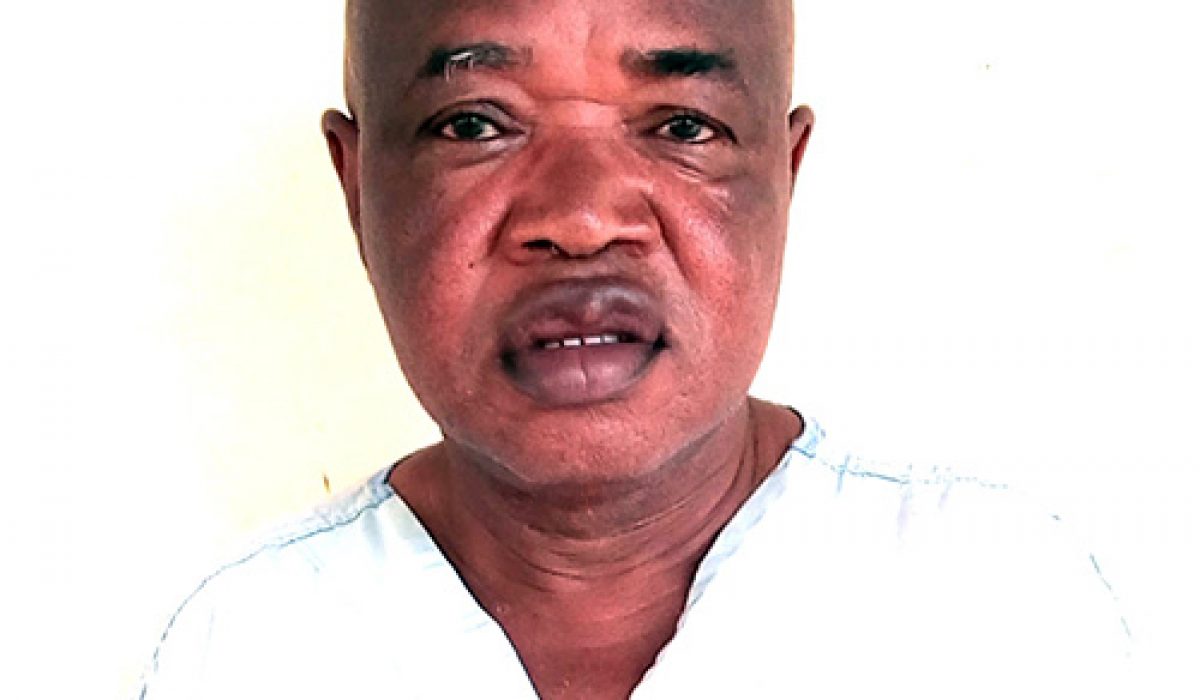
Remembering John Brimah
On World NTD and World Leprosy Day we remember and celebrate the life of John Brimah. John Saah Brimah played a pivotal role in the Reducing the Burden of Severe Stigmatising Skin Disease in Liberia and through the (REDRESS) project. He was the REDRESS co-investigator and patient advocate and was also head of the REDRESS Community Advisory Board

International Day of Women and Girls in Science: Reflections and Advice from Liberian REDRESS Team Colleagues
I sat down with REDRESS colleagues Hannah Berrien, Wede Tate and Colleen Parker to learn more about their journey in science and global health research and delivery and their reflections and advice for women and girls interested in a career in this area
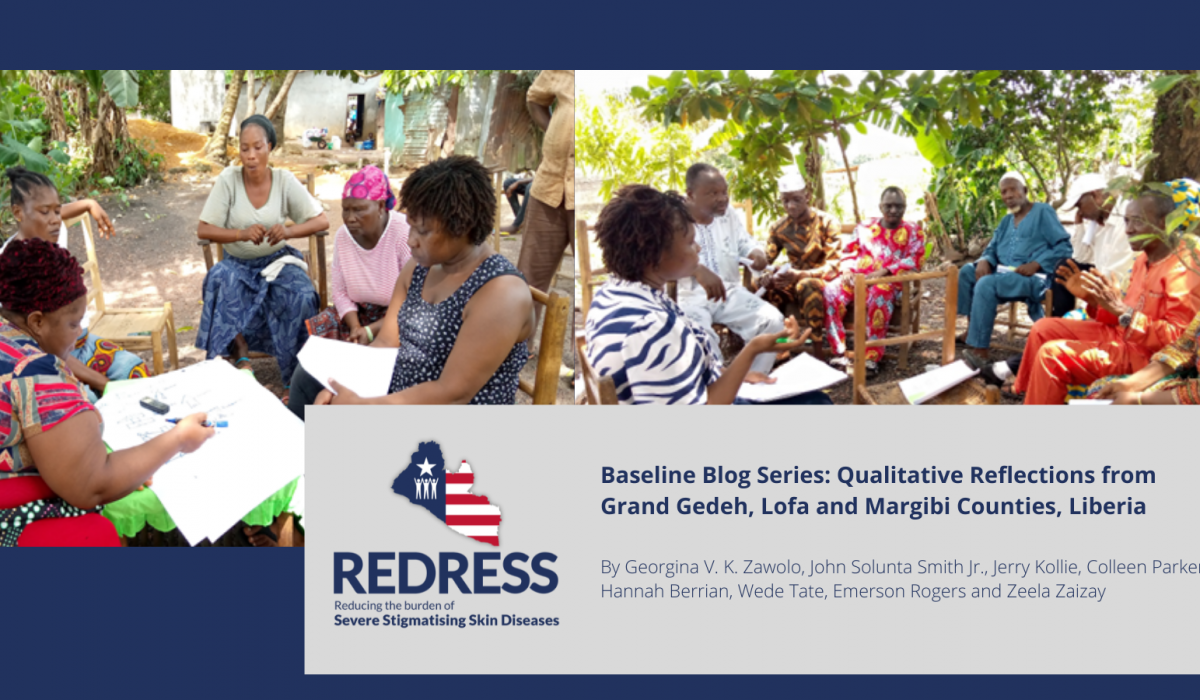
Baseline Blog Series: Qualitative Reflections from Grand Gedeh, Lofa, Margibi Counties, Liberia
REDRESS started its baseline activities in Lofa, Margibi and Grand Gedeh, the three intervention counties of REDRESS. The baseline captured experiences related to health-seeking and participation in the community, relationships and perceptions of various stakeholders before we implement the intervention so that we can evaluate any changes over time.
